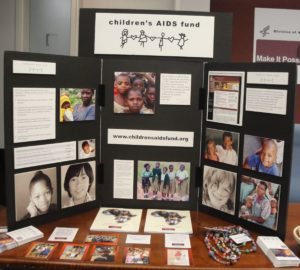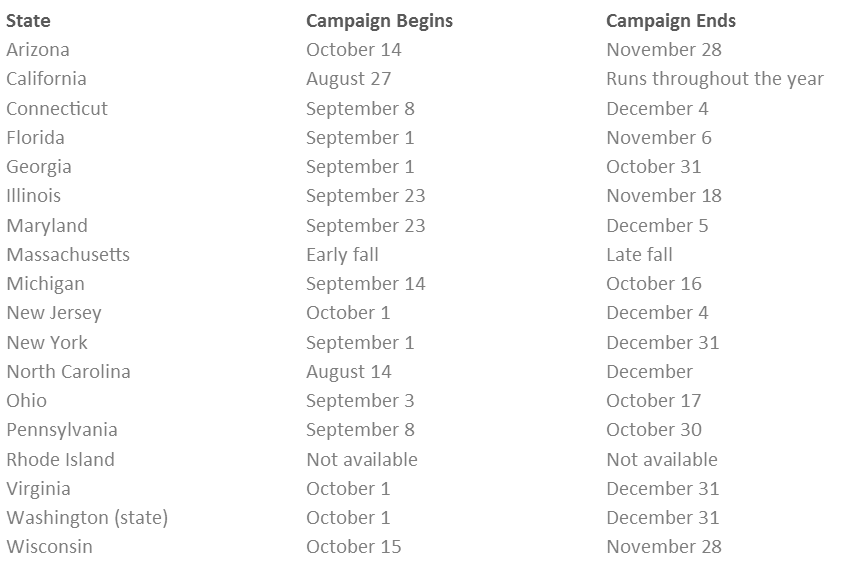State Employee Charity Giving Campaigns Begin
 Fall heralds the beginning of 2015 State Employee giving campaigns. Similar to the Combined Federal Campaign run by the US government, State campaigns ask employees to donate to one or more organizations on their list of approved charities. Approved organizations are selected based on a variety of program and finance criteria that varies from state to state.
Fall heralds the beginning of 2015 State Employee giving campaigns. Similar to the Combined Federal Campaign run by the US government, State campaigns ask employees to donate to one or more organizations on their list of approved charities. Approved organizations are selected based on a variety of program and finance criteria that varies from state to state.
This year the Children’s AIDS Fund International (CAFI) is participating in 17 state campaigns, which are an important source of funding for CAFI. Last year the North Carolina State Employee Combined Campaign (SECC) lead the way with over $1,800 pledged. Thank you North Carolina!
We try to attend as many state campaign kick-off events as possible to showcase CAFI’s important outcomes, but with campaign events in multiple states that can be difficult, if not impossible.
This is where CAFI’s friends and supporters come in. Anyone who has colleagues or acquaintances living in and working for the State government in any of the following states can encourage them to consider donating to CAFI in their state campaign.
CAFI participates in the following state campaigns:

If you know anyone who works in one of these state governments, state universities or state run hospitals, let them know about the important work CAFI is doing to help limit the suffering of children and families affected by HIV. Tell them about our website and the information it contains, or better yet forward them one of our emails highlighting our work.
Many thanks for your help and support!
 If your family is anything like ours, you understand and have survived the back-to-school daze. Purchasing new backpacks, paper, pencils, composition books, notebooks, calculators, plus the unique items on each child’s “required” list—which often takes multiple shopping trips as stores run low on special supplies. Walking younger children to the bus stop to be sure they know where it is, and setting ground rules with older ones who will car pool or drive themselves. Once everything is ready we sigh with relief and await the big day!
If your family is anything like ours, you understand and have survived the back-to-school daze. Purchasing new backpacks, paper, pencils, composition books, notebooks, calculators, plus the unique items on each child’s “required” list—which often takes multiple shopping trips as stores run low on special supplies. Walking younger children to the bus stop to be sure they know where it is, and setting ground rules with older ones who will car pool or drive themselves. Once everything is ready we sigh with relief and await the big day!